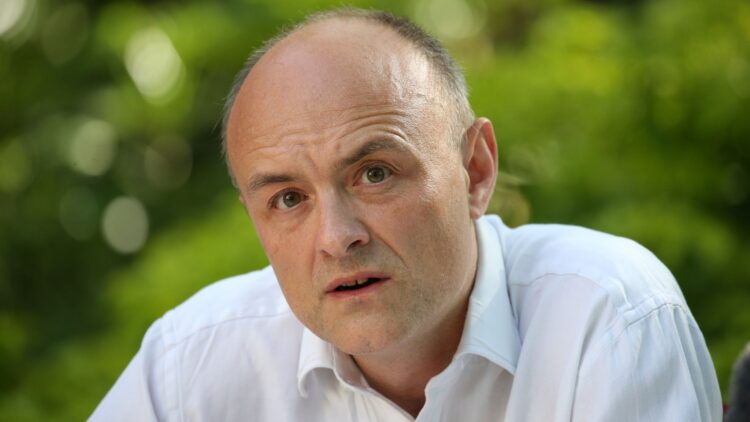By Tony O’Reilley
Dominic Cummings claims to have been present when Boris Johnson was told of security concerns about his plan to award a peerage to Evgeny Lebedev. The ex-adviser said he was “in the room” when the PM was told intelligence officials had “serious reservations” about giving the honour to the Russian-born businessman.
The security services reportedly changed their advice after Mr Johnson intervention
Lord Lebedev, who owns the Evening Standard newspaper, has denied posing a “security risk” to the UK.
Asked about the allegations that he was personally involved in the process, the prime minister said: “That is simply incorrect. But what I can tell you is, it suits Putin’s agenda to try to characterise this as a struggle between the West and Russia.
“It suits his agenda to say that the UK, that we in Nato countries, are anti-Russia, European countries are now anti-Russian.”
Last week, the Sunday Times reported that in March 2020, the House of Lords Appointments Commission – which vets peerage appointments – advised Mr Johnson against granting Mr Lebedev a seat in the House of Lords on security grounds. The newspaper said the assessment was withdrawn after Mr Johnson – a long-time friend of Lord Lebedev – personally intervened.
Standing in for Mr Johnson at PMQs whilst he visits Saudi Arabia, Deputy Prime Minister Dominic Raab said the “suggestion” she was making was “sheer nonsense”.
But, shortly after the exchange, Mr Cummings said it was false to call the claim nonsense, and Mr Raab had been “given duff lines for the Commons by No 10”.
Writing for his personal blog, Cummings wrote: “I was in the room when the PM was told by Cabinet Office officials that the intelligence services and other parts of the deep state had, let’s say serious reservations, about the PM’s plan”.
“I supported these concerns and said to the PM in his study explicitly that he should not go ahead,” he added.
Mr Cummings says Mr Johnson reacted by becoming “very cross”, and said: “This is just … You’re just … ANTI-RUSSIAN”.
Asked to respond to Mr Cummings’s comments, a government spokesperson said: “All individuals nominated for a peerage are done so in recognition of their contribution to society and all peerages are vetted by the House of Lords Appointments Commission.”
‘Central duty’
Lord Lebedev was given a peerage in July 2020, for philanthropy and services to the media, after being nominated by Mr Johnson.
The son of billionaire Russian banker and former KGB officer Alexander Lebedev, he moved to the UK as a child, and has condemned President’s Putin’s actions in Ukraine in his newspaper, writing: “I plead with you to stop Russians killing their Ukrainian brothers and sisters.”
Ms Rayner, who was standing in for Labour leader Sir Keir Starmer,made reference to newspaper reports that claimed British intelligence warned against granting a peerage to Lord Lebedev on 17 March 2020.
She then claimed that despite the concerns, the prime minister visited Mr Lebedev at his home in London 48 hours later, before the appointment was made in July.
“The central duty of any government is to keep the British people safe,” she said.
“There are now widespread reports that the prime minister did not accept warnings from our own intelligence services, granting a Russian oligarch – the son and business partner of a KGB spy – a seat here in this Parliament.
“It shouldn’t matter if such a warning was about a close personal friend of the prime minister, it shouldn’t matter if he gave the prime minister thousands of pounds of gifts, and it shouldn’t matter how much champagne and caviar he serves.”
Mr Raab said it was down to the House of Lords’ Appointment Commission to vet any prospective peers after they are nominated by the PM.
But he said peerages were given out “in recognition of what [someone’s] contribution is to society”, adding: “I should say that includes those of Russian origin who contribute brilliantly to our nation, many of whom in this country are critics of the Putin regime.”




